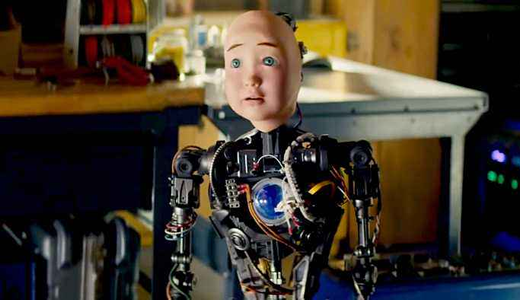“I watch the Super Bowl for the ads,” some say. And this year, those folks might’ve been some of the few who actually enjoyed it.
(Why yes, I was rooting for the Rams. Why do you ask?)
While football fans were treated to a 13-3 victory by the New England Patriots, commercial fans were treated to, well, lots and lots of commercials.
We saw scads of celebrities hock products, from Harrison Ford (Amazon Alexa) to Cardi B (Pepsi). Advertisers peddled a slew of inspirational messages and/or socio-cultural propaganda, depending on where the viewer sat or stood (or, perhaps, lay on the couch, surrounded by chip crumbs).
The NFL itself had the best commercial of the night, according to USA Today’s Ad-Meter, with its “The 100-Year Game” spot. Hyundai’s “The Elevator” and Verizon’s touching salute to first responders (featuring Anthony Davis, head coach for the Los Angeles Chargers) earned high praise from the Ad-Meter, too. Other observers lauded the rare advertising tag-team tandem of Game of Thrones and Bud Light, which reminded viewers that HBO’s beloved (but foul) show is coming back and that, I guess, no-one wants to drink warm beer, much less beer toasted by dragons. I personally enjoyed the spot produced by Bubly, with singer Michael Bublé adding an accented “e” on each and every can of sparkling, flavored water.
But watching the commercials, I noticed something else: How many intelligent machines we saw.
Amazon had an ad that featured Harrison Ford’s dog repeatedly ordering dog food from his Alexa-powered (and dog-fluent) collar. Michelob gave us a superhuman robot that could outrun, outlift and outpedal all its human counterparts—but couldn’t enjoy the taste of Michelob’s low-calorie (and dragon-free) beer. Turbotax presented us with a super-creepy kid robot who really wants to do your taxes … but lacks the requisite human emotional interplay to do so.
But my personal fave along these lines was actually the Pringles ad, where a couple of guys were trying to figure out how many different flavor combinations you could make with the titular chips. The digital assistant chimes in with the exact number, and then sinks into melancholy because it can’t taste any. “For I have no hands to stack with, no mouth to taste with, no soul to feel with. I am at the mercy of a cool and uncaring—”
“Cool!” says one of the guys. “Play ‘Funkytown!'”
So many ads played on the same issues that The New Yorker’s Troy Patterson suggests that they’re a study in “technological dread.” He notes that, in the Alexa commercial, astronauts inadvertently turn off North America’s electrical grid. “We are meant to be charmed, rather than terrified, by speculative fiction about the whoopsie doodles of the world’s largest Internet company.”
It’s pretty fascinating, this commercial dip into our once-and-future technological wonderland. While some ads did draw our attention to the marvels of modern technology without caveat—Mercedes-Benz’s own digital assistant in its “”Say the Word” spot, for instance—many more acknowledged that technology comes with caveats. Yes, it’s marvelous, these ads seem to suggest, but we know it’s troubling, too, and maybe even a little scary. But don’t worry … we humans are still in control. We humans are still better, no matter how fast that Michelob robot can run.
These are timely assurances in some respects, given how technology has so inexorably been woven into the fabric of our daily lives now, and how much more companies hope to do so. Amazon’s Alexa ad was clever and funny, yes—but I had a hard time enjoying it as much as some: My mind was still focused on the spot’s opening exchange.
https://www.youtube.com/watch?v=8y-1h_C8ad8
“I didn’t know you guys put Alexa in a microwave.”
“Yeah,” an Amazon employee says. “We’re putting her in a lot of stuff now.”
Even the use of the pronoun “her” is, to me, both comforting and a little disturbing. Amazon designed her to be relatable and conversational … and she’s everywhere. Big Brother? Try Big Sister.
As we enter into an era where more and more everyday items are connected to the internet and equipped with artificial intelligence, we must cope with real concerns about security and privacy. As digital assistants take over more of our more routine tasks, the more we may lose skills that might be important. (How many of us would feel a little lost trying to use a paper map these days?)
The Super Bowl shined a spotlight on the technologically marvelous world we live in, and hinted at the wonders still to come. But it also reminded us—gently, humorously—that technology isn’t a cure-all. And it did its best to reassure us that we’re still in control. But as we grow ever more attached to our screens and ever more dependent on technology, I do sometimes wonder how much control we really have.






Recent Comments